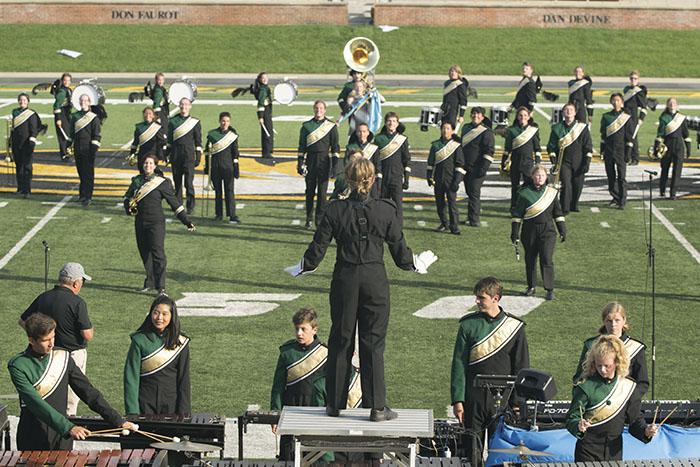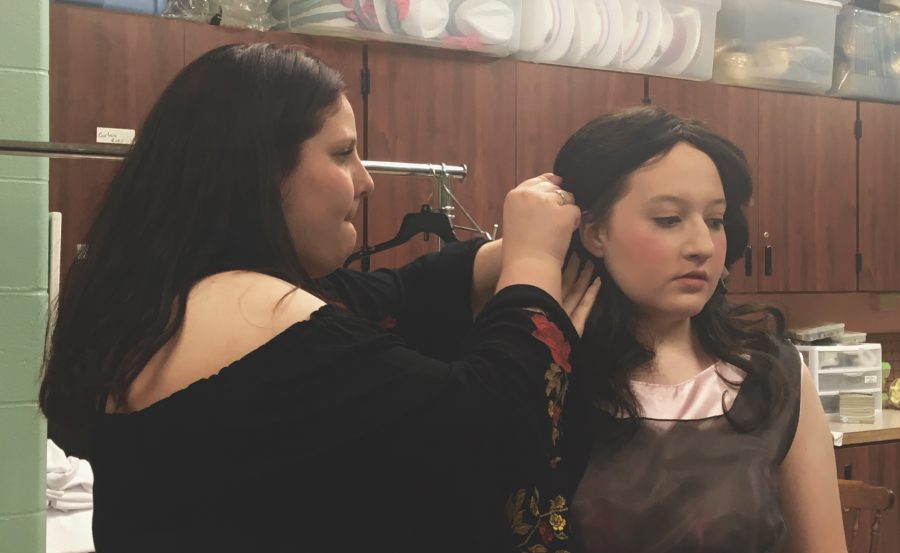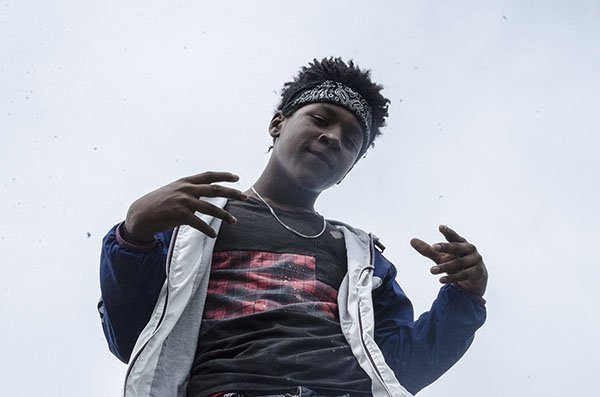
On March 24, junior Maggie Washer walked up to the rows of paper taped to a wall in the Mexico High School cafeteria. She wasn’t entirely sure what to expect, but as she scanned the list of names and found her own, excitement washed over her.
Washer would proceed to the MSHSAA state music festival with her vocal solo and ensemble, both of which resulted in the top rating of a “I” at the District Festival that day.
“I was really excited because I went to state last year and I was excited to have another opportunity to show what I can do,” Washer said. “My ensemble this year is really strong, so I think that we’ll do pretty well [at State]. And I feel better about my solo than I did last year, too, so I think that’s a good sign.”
RBHS choir director Mike Pierson said Washer is one of the 60 to 70 percent of the students who take vocal ensembles and solos to districts who move on to State. The students who perform in instrumental solos and ensembles share equal success, said RBHS band director Steve Mathews, with an estimated 75 percent of Districts participants moving on to State. Mathews views the performance opportunities as chances for his students to gain independence not felt in the typical classroom setting.
“It makes a person have to really work on their individual parts,” Mathews said. “It’s more individual accountability when you’re playing in a small group versus a large group. You can hide in a large group, but in a small group, like a quartet or a trio, it makes you have to be more committed to knowing your part.”
Although the music programs have high success rates at the state music festival, with Rock Bridge students often earning mainly Is and IIs, some will perform at state for their first time with shaken expectations, such as senior Mitchell Taylor. Taylor competed at the district festival for his first time this year, and though his brass quintet qualified for the state festival, he remains unsure of what to anticipate from his ensemble.
“Honestly I didn’t feel very confident at all [at Districts] because it was my first time competing at Districts, so my confidence level was not that high,” Taylor said. “But everyone in my group was pretty qualified and capable so I believed in them.” Even then, Taylor said, “we barely scraped up a I. I feel like if we practice enough [before State] then we’ll definitely get a I, but if we don’t, then that sucks.”
Washer acknowledges that despite the fact that all who are going to the state festival earned Is initially in their Districts performances, the competition and ability to do well at state is much harder and requires a lot of hard work.
“The atmosphere is definitely different because there are so many more people and it’s the ‘top level,’” Washer said. “Everyone wants to do their best and it’s a lot harder to get a I at state than at districts, so it’s a lot more pressure.”
Despite the additional stress, Washer believes the feedback gained from performing at a festival such as State is important for musicians to improve on their abilities. The opportunity to get an outside opinion on a student’s musical talent is valuable in making progress in the future.
“I think it’s important just to have the experience of performing in front of people and judges and getting feedback from them, even if you’re not going to get a I at state,” Washer said. “It’s still important to get the feedback from the judges and see what they have to say about … how you can improve for the next performance that you have.”
By Alyssa Sykuta

















































































